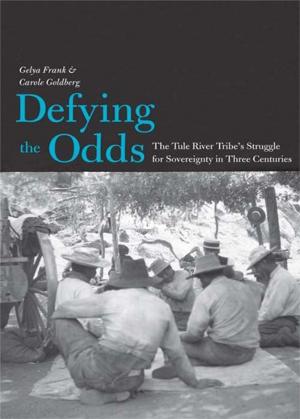Why Trilling Matters
Fiction & Literature, Literary Theory & Criticism, Books & Reading, Biography & Memoir, Literary| Author: | Mr. Adam Kirsch | ISBN: | 9780300178289 |
| Publisher: | Yale University Press | Publication: | October 25, 2011 |
| Imprint: | Yale University Press | Language: | English |
| Author: | Mr. Adam Kirsch |
| ISBN: | 9780300178289 |
| Publisher: | Yale University Press |
| Publication: | October 25, 2011 |
| Imprint: | Yale University Press |
| Language: | English |
Lionel Trilling, regarded at the time of his death in 1975 as America’s preeminent literary critic, is today often seen as a relic of a vanished era. His was an age when literary criticism and ideas seemed to matter profoundly in the intellectual life of the country. In this eloquent book, Adam Kirsch shows that Trilling, far from being obsolete, is essential to understanding our current crisis of literary confidence—and to overcoming it.
By reading Trilling primarily as a writer and thinker, Kirsch demonstrates how Trilling’s original and moving work continues to provide an inspiring example of a mind creating itself through its encounters with texts. Why Trilling Matters introduces all of Trilling’s major writings and situates him in the intellectual landscape of his century, from Communism in the 1930s to neoconservatism in the 1970s. But Kirsch goes deeper, addressing today’s concerns about the decline of literature, reading, and even the book itself, and finds that Trilling has more to teach us now than ever before. As Kirsch writes, “Trilling’s essays are not exactly literary criticism” but, like all literature, “ends in themselves.”
Lionel Trilling, regarded at the time of his death in 1975 as America’s preeminent literary critic, is today often seen as a relic of a vanished era. His was an age when literary criticism and ideas seemed to matter profoundly in the intellectual life of the country. In this eloquent book, Adam Kirsch shows that Trilling, far from being obsolete, is essential to understanding our current crisis of literary confidence—and to overcoming it.
By reading Trilling primarily as a writer and thinker, Kirsch demonstrates how Trilling’s original and moving work continues to provide an inspiring example of a mind creating itself through its encounters with texts. Why Trilling Matters introduces all of Trilling’s major writings and situates him in the intellectual landscape of his century, from Communism in the 1930s to neoconservatism in the 1970s. But Kirsch goes deeper, addressing today’s concerns about the decline of literature, reading, and even the book itself, and finds that Trilling has more to teach us now than ever before. As Kirsch writes, “Trilling’s essays are not exactly literary criticism” but, like all literature, “ends in themselves.”















